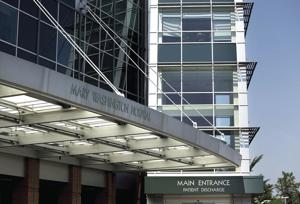A recent study from the University of Virginia reveals that aggression among young people may lead to accelerated biological aging by the age of 30. The research, led by psychology professor Joseph Allen, indicates that 13-year-olds who exhibit hostility toward their friends and experience conflicts, particularly with their fathers, show signs of aging at a faster rate in adulthood.
The longitudinal study began in 1998 and involved repeated assessments of 123 participants, including their close friends and parents, over a span of 17 years. Researchers measured various health indicators, including cholesterol levels, blood pressure, blood sugar, white blood cell counts, inflammation, and protein levels. According to Allen, these markers provide significant insight into a person’s longevity and overall health.
Understanding the Impact of Hostility
Allen emphasized that two key factors correlate with accelerated aging: ongoing conflict with fathers during late adolescence and hostile behavior toward friends throughout one’s twenties. He noted, “We find that between adolescence and adulthood, a couple of things correlate to this.” This finding builds upon previous research linking hostile relationships in early life to future heart problems.
What sets this study apart is its focus on specific behaviors reported by friends, which predict not only heart health but also a broader range of physiological indicators. “It’s predicting not just heart problems, but a broad range of markers that show you’re deteriorating faster than you should,” Allen explained.
The study included 46 males and 75 females, and the results apply equally to both groups, highlighting the universal nature of these findings.
The Role of Father-Child Relationships
The research also delved into the dynamics of father-child relationships. While the exact reasons remain unclear, Allen suggested that the nature of these relationships may serve as a template for future interactions. “Relationships with mothers, to some extent, set up a template for how you will interact in your intimate and romantic relationships,” he said. In contrast, relationships with fathers could be more predictive of how children fare in broader social contexts.
Allen cautioned that the sample originates from 1998, indicating the findings may reflect societal norms of that time. He pointed out that conflicts with fathers might carry higher stakes, which could lead to more serious consequences. “Conflict with mothers in most families could lead to yelling or, at worst, slapping, but conflict with fathers has much more potential to lead to more physically serious consequences,” he noted.
Even without physical altercations, a father’s yelling can come across as more intimidating, suggesting that such conflicts may feel more intense for adolescents.
Parents and guardians should recognize the seriousness of teenage friendships. Allen stated, “These data suggest that instead of saying ‘That’s silly,’ that in some sense the teenagers are right, that the patterns they’re establishing are going to be quite important down the road.”
He advised that if a teenager exhibits increasingly hostile relationships, it should be treated as a significant warning sign. “It’s a warning sign, not just for their mental health, but for their long-term development,” Allen concluded.
The findings of this study will be published later this month in the Journal of Health Psychology. The research underscores the importance of nurturing healthy relationships during adolescence to promote better health outcomes in adulthood.







